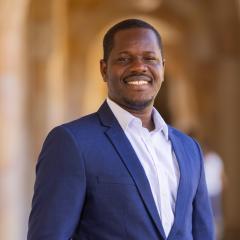Using systems thinking to better understand risks and protective factors at play for urban Indigenous peoples during COVID-19
The University of Queensland is spearheading one of eleven APPRISE research projects focused on improving the health of First Nations people in the face of COVID-19. These projects are supported by $2million in funding from the Paul Ramsay Foundation.
The team will be led by Professor Bronwyn Fredericks (PVC Indigenous Engagement) of the UQ Poche Centre for Indigenous Health. Dr Sue McAvoy (Centre for the Business and Economics of Health) is Coordinating Chief Investigator and delivering the system thinking processes. They are joined by Poche researchers Professor James Ward, Troy Combo and Shea Spierings, and UQ research assistant Agnes Toth-Peter.
Uncovering the complexities of social systems
COVID-19 has exposed health care deficiencies in many communities, most visibly in residential aged care. While not receiving the same media coverage, urban Indigenous communities are also particularly vulnerable due to the characteristics of the social systems that support their health.
Through a series of workshops, this research project aims to uncover an operational view of how the system works, exposing more than just a high-level understanding of cause-and-effect factors. This increases the likelihood of uncovering both actionable levers and unintended consequences.
Engaging local experts
Three workshops will be conducted in Brisbane, drawing on the knowledge and experience of health practitioners engaged with local urban Indigenous communities. This includes senior leaders from Hospital and Health Services, Primary Health Networks and Aboriginal Community Controlled Health Organisations, amongst other leading health organisations.
We are putting those with expert knowledge of parts of a complex system in the same room and using a rigorous and scientific process to pull apart - and put back together - the problem and network so that systems, levers and unintended consequences can be explored.
- Dr Sue McAvoy
What is Systems Thinking?
The process uses a fully participatory process where stakeholder workshops provide the basis for developing a system understanding around the problem and then identifying potential solutions. Multiple (typically three) stakeholder workshops are run to draw upon the knowledge (mental models) of the participants in developing a collective understanding of the elements, connections, and feedbacks of the system. This means mapping both interdependencies (how one variable impacts another) and feedbacks. A feedback loop is a chain of cause and effect relationships that can be traced back to influence its original cause.
The use of systems thinking is relatively new in Australia. It has been engaged in in the US and Europe much more thoroughly. So it is exciting to bring this lens to Indigenous health policy.
- Dr Sue McAvoy
The tools of systems thinking include the use of systems maps and causal loop diagrams. They can:
- quickly capture your hypothesis about the causes of the dynamics observed
- elicit and capture the mental models of stakeholders
- communicate the important feedbacks creating the system behaviours.
These visual maps and diagrams can illuminate the functioning of the system being studied and highlight gaps and actionable levers to improve system performance.
The findings of this research will be used to aid in developing a list of policy-oriented action steps that can be transferred to other Indigenous communities nationwide, and combat the social determinants of health that affect COVID-19 response and prevention.



